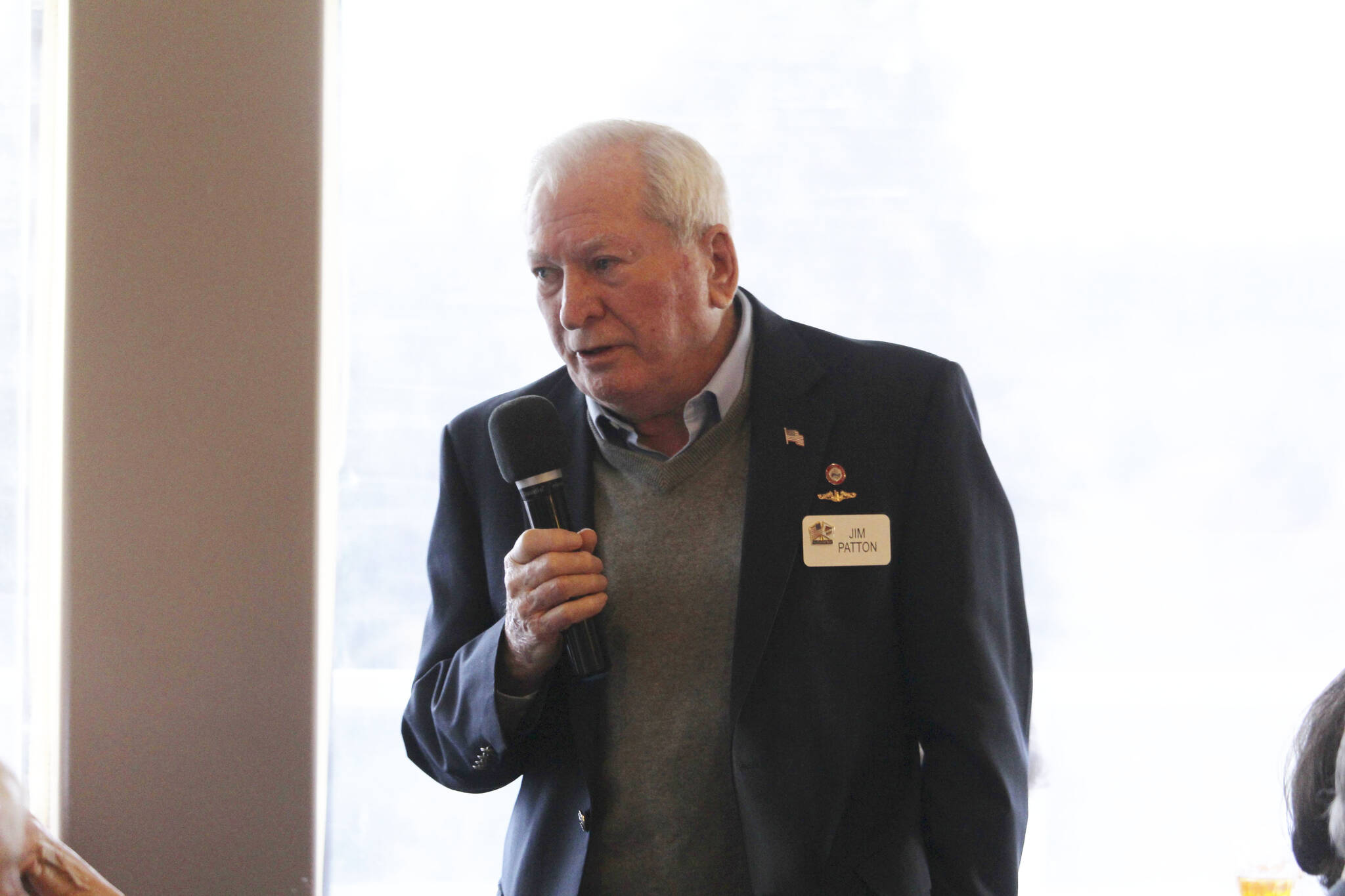A retired Navy captain analyzed Russia’s mistakes in its ongoing war with Ukraine at a meeting of the Whidbey Island Chapter of the Military Officers Association of America March 10.
Jim Patton of Coupeville, who is also a former officers association president, told association members that he was outraged when he learned Russian military units had invaded Ukraine.
“I think most of the people in this room served this country during the Cold War with the Soviet Union, and I think everybody — those who served, even those who didn’t — rejoiced when that war was over and the Soviet Union collapsed,” he said.
Though conflicts with other nations followed the Cold War, Patton said he did not anticipate this kind of action from Russia again.
“We thought that we were off the hook as far as Moscow was concerned, and it turns out now that we’re not,” he said.
Patton, who holds a doctorate in law and diplomacy and formerly served as executive director of the Chief of Naval Operations Executive Panel at the Pentagon, said he expected the fight in Ukraine to end within a matter of days. In this, he said, he made the same mistaken assumptions as Russian President Vladimir Putin.
First, according to Patton, Putin assumed that Russia’s military might was so much greater than Ukraine’s that the Russian military would have no problem blazing straight through the country. Patton said it is probable that the Russian president also wrongly anticipated little to no resistance from Ukraine, which isn’t known for its military prowess.
Based on data from the International Institute for Strategic Studies, Russia has more than 14 times Ukraine’s defense budget. As of 2021, active military personnel in Russia outnumbered Ukraine’s active military personnel by more than four to one.
But despite these inauspicious statistics, Ukraine has resisted.
“They are fighters, and they love their country, and they’re willing to die for it,” Patton said.
According to Patton, Russia was not prepared for an extended battle from a logistical standpoint. The military had not properly maintained its equipment, and the task of feeding the army at almost 1 million meals per day was overwhelming.
Furthermore, Patton said Kremlin propaganda casting Ukraine as the aggressors in this conflict has backfired. As Russian military personnel, many of whom are young conscripts, see the Ukrainians defend themselves, Patton said, they are less willing to carry out Putin’s orders. Putin is also struggling to garner support for the war as Russian citizens take a stand against the war crimes he has committed by attacking Ukrainian civilians in locations such as hospitals and schools.
Patton said that at the latest count, approximately 2 million Ukrainian refugees have fled their homeland, around half of whom are children.
Effects of the conflict are far-reaching within the global economy, as the U.S., the United Kingdom, the European Union and others impose sanctions against Russia. For example, gas prices in the U.S. have soared in response to President Biden banning the importation of Russian oil and other fuels. On Whidbey Island, gas prices were approaching $5 per gallon as of Thursday evening. Russia is one of the largest fossil fuel exporters in the world.
Still, despite adverse odds, Patton predicted that Russia will not be able to successfully occupy Ukraine for long, even in the event of a technical military defeat. Ukraine is simply too large a country, Patton said, and its citizens are too determined to maintain its freedom.



